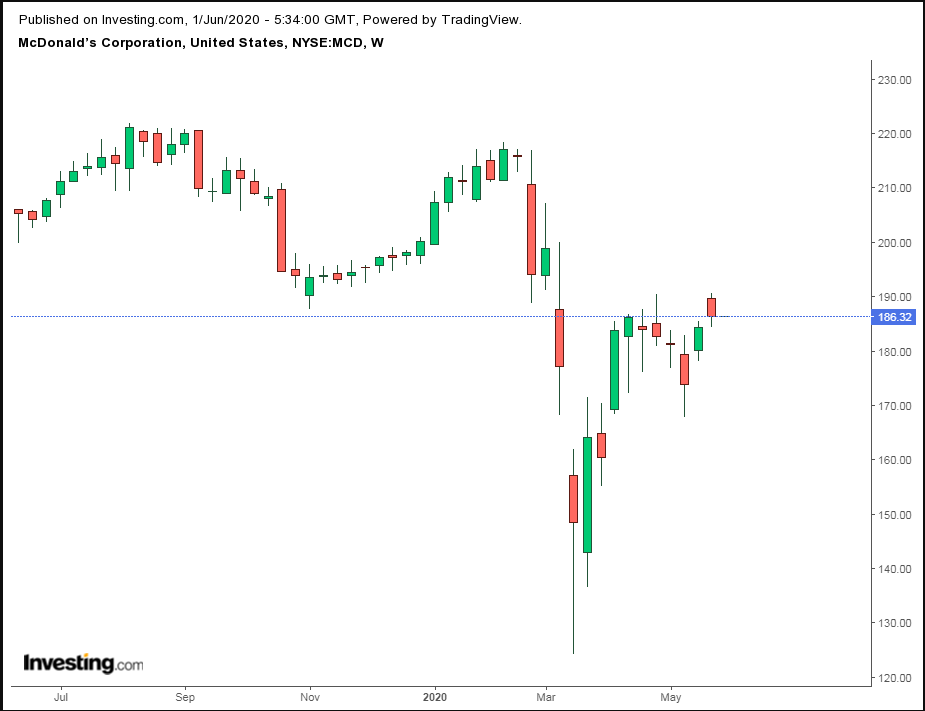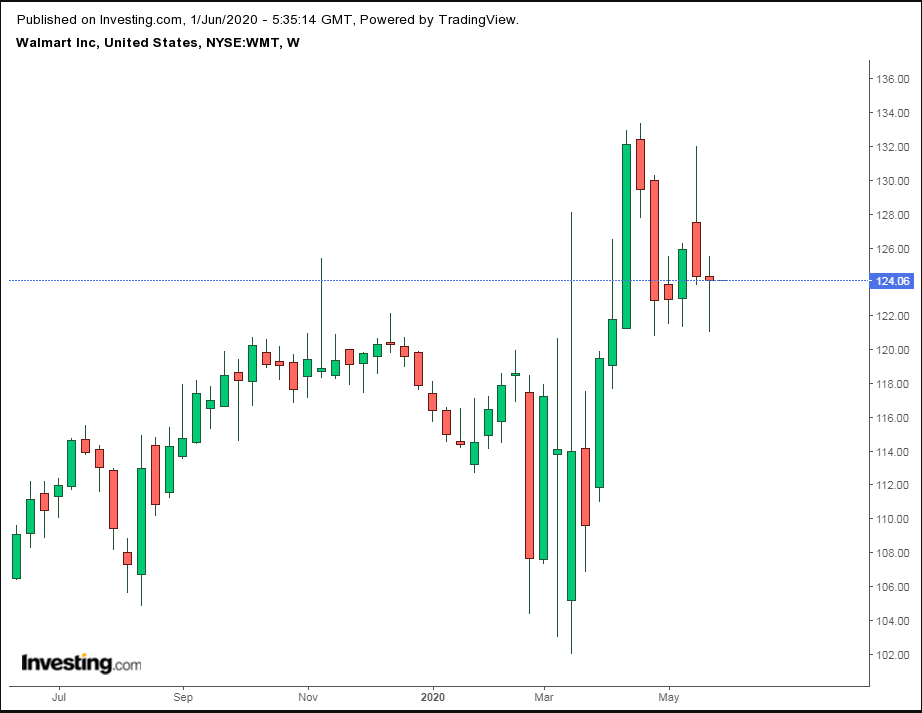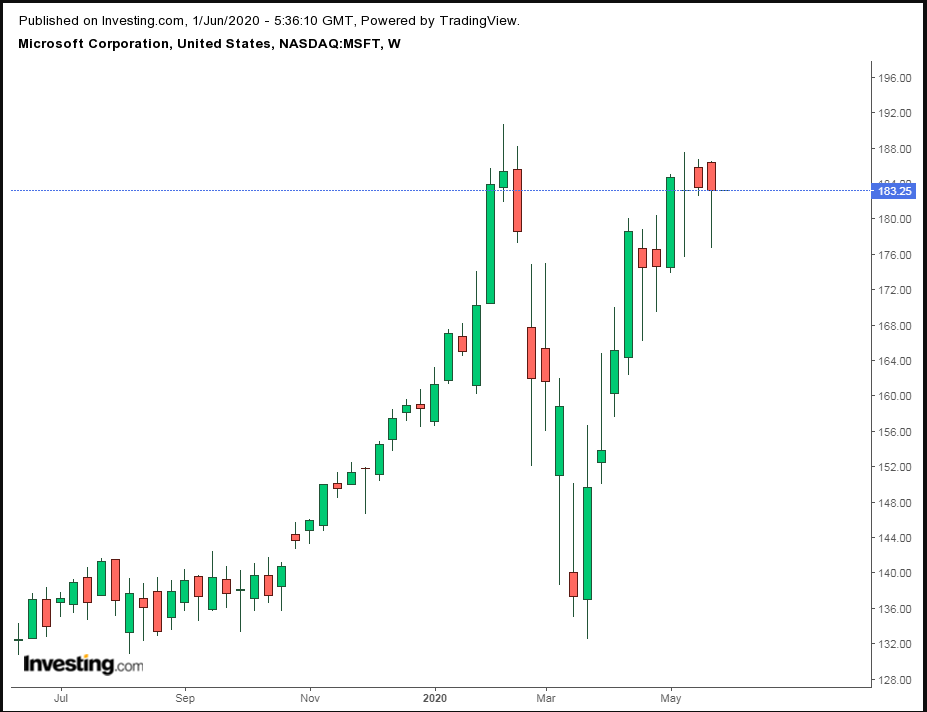Even as the world braces for a long, deep recession and unprecedented levels of unemployment, U.S. stocks, as measured by the S&P 500 Index, have rallied for two straight months after plunging in February and March.
But despite this investor optimism, the outlook for the economy is far from sunny. COVID-19 continues to kill thousands of people globally every day, there's still no vaccine, and mandatory social-distancing rules along with shuttered business that may or may not reopen, are contributing to what is forecast to be a severe recession.
In this highly uncertain environment, where market risks are intensifying, it makes sense to add safety to one's investment portfolio by buying high-quality, large-cap, low-risk stocks which tend to outperform during the downturn phase of the market cycle.
With this in mind, we've selected the following three stocks. They should continue to produce income even during an economic recession.
1. McDonald’s
On the surface, it doesn't seem to be a good time to look favorably at the largest fast food chain in the world, McDonald’s (NYSE:MCD). Many consumers remain in lockdown and the economy is still in freeze mode. But history tells us that MCD is a good recession-proof stock.

The fast-food chain was among the best performers during the Great Recession of 2008 and 2009 and looks poised to repeat that accomplishment. According to stock research firm Baird:
“MCD appears to have plenty of liquidity to support its franchisees as they work through short-term sales and cash flow issues, and history suggests the McDonald’s brand contains recession-resistant qualities that should allow for better-than-average fundamental performance in 2H20/2021.”
Another important factor that makes McDonald's a good long-term pick is the stability of its dividends. The company has raised its payout each and every year since 1976, when it first started paying dividends. It currently pays a quarterly dividend of $1.25 a share which translates into a 2.65% annual dividend yield.
After some recovery in the past two months, the Chicago-based company's stock is still down more than 14% from the pre-pandemic high. It closed at $186.32 on Friday. This weakness provides a good entry for long-term investors waiting on the sidelines.
2. Walmart
One way to position your portfolio to better perform during times of market distress is to include companies that produce or sell products and services that are crucial to our daily lives. Giant retail companies such as Walmart (NYSE:WMT) fit this profile well.
This built-in protection makes the world’s largest brick-and-mortar grocer a great recession-proof stock. With a beta of just 0.43 (riskier stocks have a higher beta, closer to or above 1), Walmart is one of the safest mega-cap stocks available.

After touching a record high of around $133 in mid-April, Walmart has lost some steam in the past few weeks. It closed on Friday at $124.06, up about 4% for the year.
The growing success of its hybrid retail model—in which its massive store network and online presence come together to create a superior shopping experience for customers—is evident from the company’s recent earnings reports.
Walmart’s rock-solid dividend is an added benefit. It makes this stock a good choice to own through the market's thick and thin activity. The company has an impressive track record when it comes to returning cash to its investors.
Early this year, Walmart announced a 4% hike in its dividend, boosting the payout to $0.54 per share quarterly, for a 1.75% yield. With this increase, Walmart has raised its payout every year for the past 46 years. Regularly increased payouts provides a good hedge and protects the value of your investment from erosion by inflationary pressures.
3. Microsoft
In the technology space, Microsoft (NASDAQ:MSFT) is a strong recession-proof stock to consider. Unlike some of its sector peers, Microsoft is in a much better position to withstand the worsening economic outlook as evident from the current shelter-in-place trend.

The global lockdowns have forced millions of people to work from home, leading to increased demand for the tech giant's offerings, including cloud computing and gaming.
“As COVID-19 impacts every aspect of our work and life, we’ve seen two years’ worth of digital transformation in two months,” Microsoft Chief Executive Satya Nadella told analysts in April during the company's conference call.
The health crisis has increased the demand for Microsoft services, such as its workplace collaboration software suite, Teams that includes videoconferencing and messaging functions. It now has 75 million daily active users, more than double the number it had in early March.
In addition to this business strength during the pandemic, Microsoft also pays a rock-solid dividend. On this particular metric, Microsoft has an excellent track record. Since 2004, when it first began paying dividends, the company’s payout has swelled by more than 400%.
The continued dividend growth has been supported by a low payout ratio of 32% and strong underlying businesses. Currently, Microsoft's annual dividend yields 1.12% which translates into a quarterly payment of $0.51 per share.
During market downturns, companies that pay regular dividends are generally in a much better position to withstand the selling pressure than those that don’t. Dividend paying stocks are also less volatile in bear markets since investors aren't as likely to divest the recurring, fixed-income they provide.
